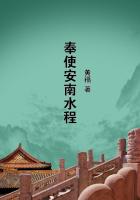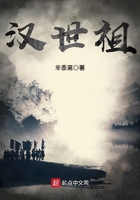"At no time did my force exceed 35,000 men; often it was less." With a look of surprise, Meade answered:
"General, you amaze me; we always estimated your force at about seventy thousand men."
General de Chanal, a French officer, who was present, states that General Lee, who had been an associate of Meade's in the engineers in the "old army," said to him pleasantly:
"Meade, years are telling on you; your hair is getting quite gray."
"Ah, General Lee," was Meade's prompt reply, "it is not the work of years; YOU are responsible for my gray hairs!"
"Three days after the surrender," says Long, "the Army of Northern Virginia had dispersed in every direction, and three weeks later the veterans of a hundred battles had exchanged the musket and the sword for the implements of husbandry. It is worthy of remark that never before was there an army disbanded with less disorder. Thousands of soldiers were set adrift on the world without a penny in their pockets to enable them to reach their homes. Yet none of the scenes of riot that often follow the disbanding of armies marked their course."
A day or two after the surrender, General Lee started for Richmond, riding Traveller, who had carried him so well all through the war.
He was accompanied by some of his staff. On the way, he stopped at the house of his eldest brother, Charles Carter Lee, who lived on the Upper James in Powhatan County. He spent the evening in talking with his brother, but when bedtime came, though begged by his host to take the room and bed prepared for him, he insisted on going to his old tent, pitched by the roadside, and passed the night in the quarters he was accustomed to. On April 15th he arrived in Richmond. The people there soon recognised him; men, women, and children crowded around him, cheering and waving hats and handkerchiefs. It was more like the welcome to a conqueror than to a defeated prisoner on parole.
He raised his hat in response to their greetings, and rode quietly to his home on Franklin Street, where my mother and sisters were anxiously awaiting him. Thus he returned to that private family life for which he had always longed, and become what he always desired to be--a peaceful citizen in a peaceful land.
In attempting to describe these last days of the Army of Northern Virginia, I have quoted largely from Long, Jones, Taylor, and Fitz Lee, all of whom have given more or less full accounts of the movements of both armies.
It so happened that shortly after we left our lines, April 2d or 3d, in one of the innumerable contests, my horse was shot, and in getting him and myself off the field, having no choice of routes, the pursuing Federal cavalry intervened between men and the rest of our command, so I had to make my way around the head of Sheridan's advance squadrons before I could rejoin our forces. This I did not succeed in accomplishing until April 9th, the day of the surrender, for my wounded horse had to be left with a farmer, who kindly gave me one in exchange, saying I could send him back when I was able, or, if I was prevented, that I could keep him and he would replace him with mine when he got well.
As I was riding toward Appomattox on the 9th, I met a body of our cavalry with General T. H. Rosser at the head. He told me that General Lee and his army had surrendered, and that this force had made its way out, and was marching back to Lynchburg, expecting thence to reach General Johnston's army. To say that I was surprised does not express my feelings. I had never heard the word "surrender" mentioned, nor even a suggested, in connection with our general or our army. I could not believe it, and did not until I was positively assured by all my friends who were with Rosser's column that it was absolutely so. Very sadly I turned back and went to Lynchburg along with them. There I found some wagons from our headquarters which had been sent back, and with them the horses and servants of the staff. These I got together, not believing for an instant that our struggle was over, and, with several officers from our command and others, we made our way to Greensboro, North Carolina. There I found Mr. Davis and his cabinet and representatives of the Confederate departments from Richmond.
There was a great diversity of opinion amongst all present as to what we should do. After waiting a couple of days, looking over the situation from every point of view, consulting with my uncle, Commodore S. S. Lee, of the Confederate Navy, and with many others, old friends of my father and staunch adherents of the Southern cause, it was determined to go back to Virginia to get our paroles, go home, and go to work.
While at Greensboro I went to see President Davis, just before he proceeded on his way further south. He was calm and dignified, and, in his conversation with several officers of rank who were there, seemed to think, and so expressed himself, that our cause was not lost, though sorely stricken, and that we could rally our forces west of the Mississippi and make good our fight. While I was in the room, Mr. Davis received the first official communication from General Lee of his surrender. Colonel John Taylor Woods, his aide-de-camp, had taken me in to see the President, and he and I were standing by him when the despatch from General Lee was brought to him. After reading it, he handed it without comment to us; then, turning away, he silently wept bitter tears. He seemed quite broken at the moment by this tangible evidence of the loss of his army and the misfortune of its general. All of us, respecting his great grief, silently withdrew, leaving him with Colonel Wood. I never saw him again.
I started for Richmond, accompanied by several companions, with the servants and horses belonging to our headquarters. These I had brought down with me from Lynchburg, where I had found them after the surrender.













